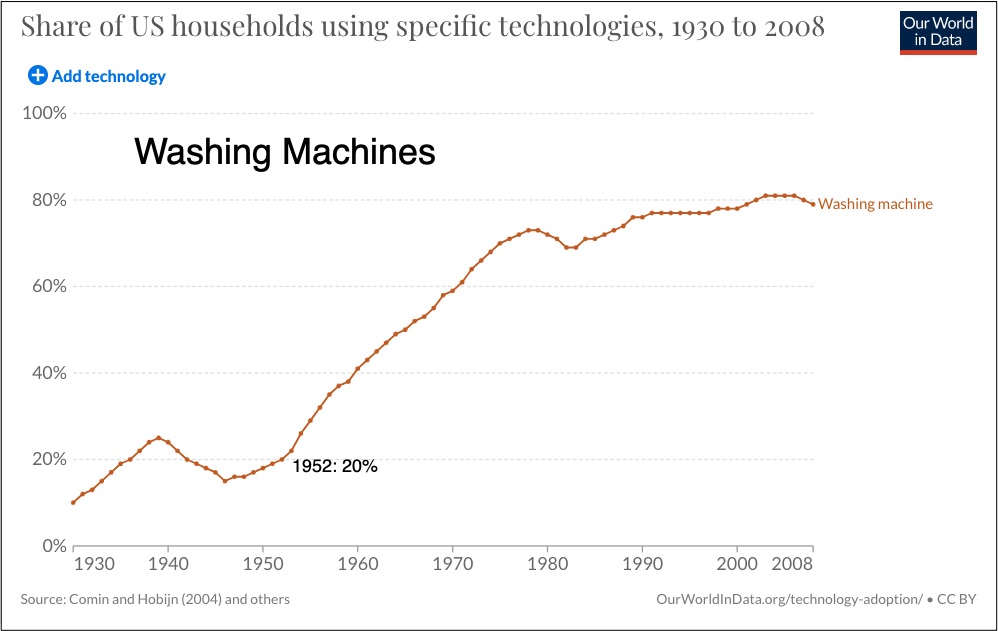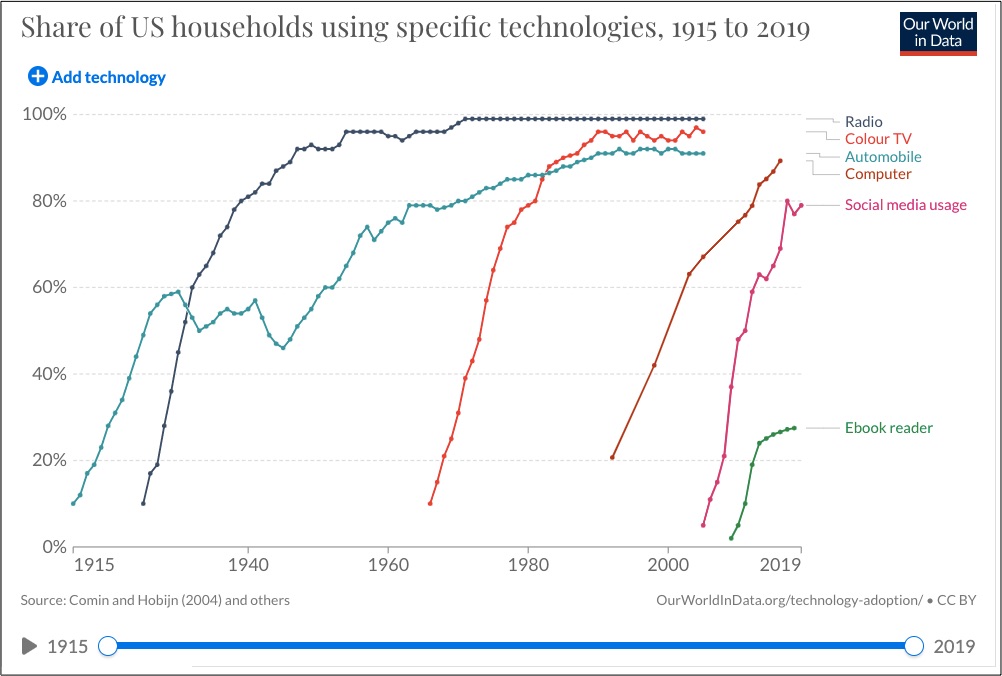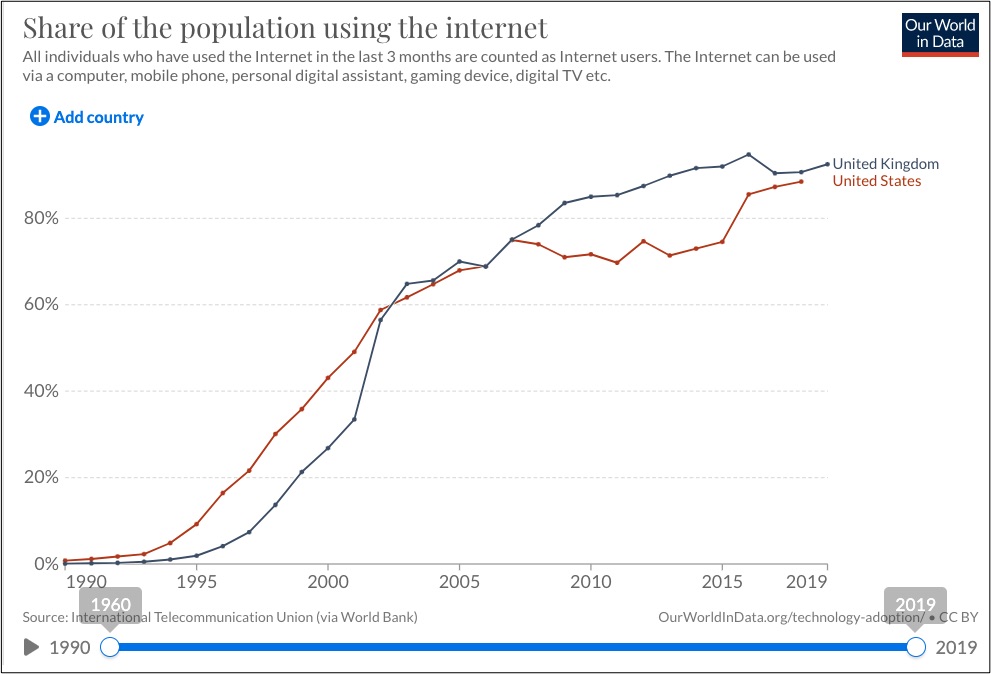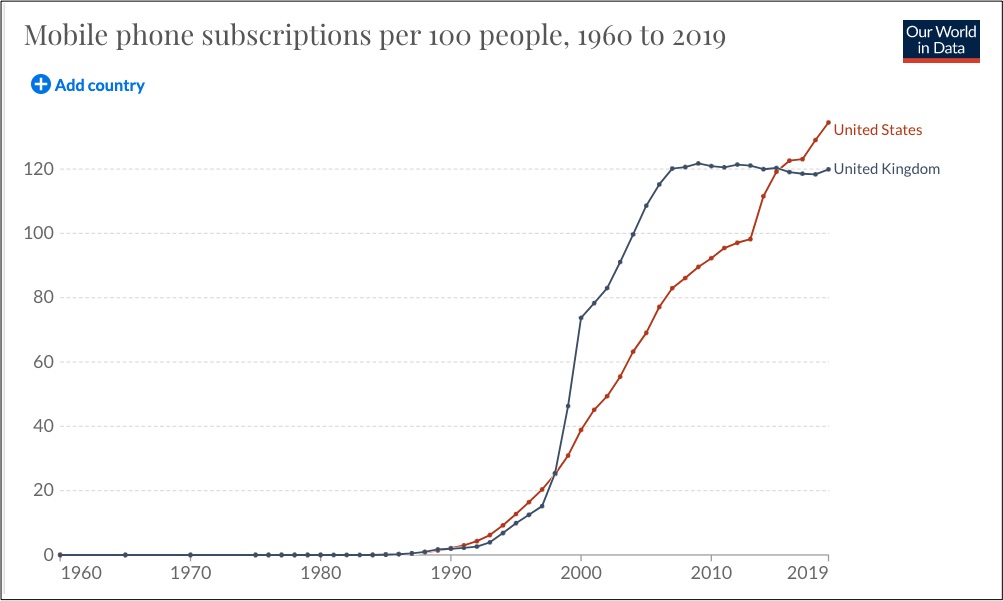
Why Theaters Could Have Popcorn Problems
June 2, 2022
June 2022 Friday’s e-links: What Julia Child Says To Us
June 3, 2022During the 70 years of her monarchy (1952-2022), Queen Elizabeth saw considerable change. As an investor, she would have observed an index of U.K. shares rising by 345 percent. Meanwhile homes became smaller (down from 77 to 68 square meters) and higher education participation rose from three percent to 53 percent.
In 1952, it also would have been tough to foresee the technological changes.
Technological Change
Using data from the U.S. and U.K., we could start with the washing machine.
Having a washing machine made a massive difference for women. If we looked back to the U.S. in 1900, we would have seen the wash occupying an average of seven hours a week. Think, for example, of 40,000 diapers that a mother with four kids had to clean during 30 months. If she lived in the majority of homes that lacked running water, she had to carry thousands of gallons into her house, then boil it, use a scrub board, and a wringer.
In 1960, 45 percent of all households in Great Britain had a washing machine while by 2018, the number was approximately 98 percent. Less for the U.S., in 2017 the totals were closer to 86 percent. You can see though that 1952 was the beginning of the surge:

Everyday tech
It is likely that Queen Elizabeth saw similar changes in technologies used by British households:
The internet
But I did locate the numbers for the internet in the U.K.:
Mobile phones
And for mobile phones:
Our Bottom Line: Creative Destruction
In 1952, less than half of the households in Great Britain had washing machines and few people had even imagined the mobile phone. Now, almost every household has a washing machine and more than one mobile phone.
The reason? We could thank our entrepreneurs.
As economist Joseph Schumpeter (1883-1950) explained, entrepreneurs create jobs, progress, and productivity. They change consumer habits, design new means of production, and develop new forms of economic organization. But they also create the pain connected with the demise of old industries as new products and processes replace what had existed.
Through creative destruction (aka the paradox of progress), autos upset buggy makers, the light bulb eliminated kerosene lamps, and typewriters disappeared. We could also say that creative destruction is the reason that we have washing machines rather than scrub boards.
My sources and more: Thanks to my neighbor Grant for inspiring today’s post on technological change and sharing the U.K. stats in Deloitte’s Monday Briefing.. From his email, I went straight to my main destination, OurWorldinData. Then, Pursuing Happiness was the perfect complement for innovation information. And finally, completing the picture, econlib had more on Schumpeter.
Please note that parts of today’s “Bottom Line” were in past econlife posts.
![econlifelogotrademarkedwebsitelogo[1]](/wp-content/uploads/2024/05/econlifelogotrademarkedwebsitelogo1.png#100878)







